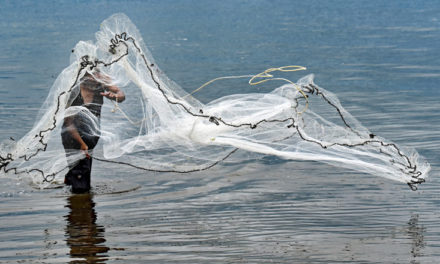Rock Solid Love
Tena tātou katoa e te iwi mīhana… (Greetings to all the people in mission),
This month’s whakataukī (proverb) is: “Ahakoa te awha te toka tū moana tū tonu, tū te ao, tū te po. Te toka rurenga tai, neneke i te ngaru.” (The boulder standing still in the storm swept sea, endures through both day and night. The cast off stone rolls in the waves). This proverb speaks of standing firm in righteous convictions during a crisis. That is, to hold on to long established truths and relational commitments. As opposed to being like a stone easily moved by the smallest waves, rattled, haunted and restless.
Reactive leaders, who ignore the larger issues and the wellbeing of all can be likened to stones rolling in the waves.
As my city of residence, Auckland, enters its eighth week of restrictive lockdown due to COVID-19’s delta variant, our population is understandably antsy. A slight loosening of the restrictions to allow takeaway food, click/collect shopping, and (more recently) meeting outside with another household, eased a little tension, but it also probably loosened expectations just enough for some to push beyond their boundaries. We’ve seen an uptick in the number of people at beaches and wandering further from their own neighbourhoods to meet in groups.
In times of crisis, leaders have a tough responsibility. How are they to best care for those who look to them for guidance? Should the public good trump specific needs of those we are responsible for? Reactive leaders, who ignore the larger issues and the wellbeing of all, can be likened to stones rolling in the waves. Tossed this way and that by instinct and conspiracy, it reveals an immaturity that Paul likens to that of children being manipulated by ideas that have about as much substance as a gust of wind (see Eph.4:14).
As the epistles show, those who are moved by self interest and fanciful ideas, can be very convinced of their rightness and compelling in their attempts sway others. This is the stuff of conspiracy theories, anchored as they are to faith in personalities and ideologies more than by grounded reality. Leaders who promote action and provoke reaction against perceived grievances by the state (or some other authority) are sure to find a following among the discontented, but numbers do not prove the rightness of the argument, merely the persuasiveness of the mouthpiece.
Maturity is marked by unity, our common and unbreakable commitment to our shared faith in and experience of a loving God.
How then should followers of Christ discern what is “right” or “wrong”? When does a matter truly restrict our religious liberties and harm our people, and when does it merely inconvenience our self-centred preferences? How can we know that we are building our house upon a rock as opposed to the sand (or pebbles) that will be undermined by the wind and flood (or waves)? In Matt.7:24-29 Jesus said, with authority, that the wise builder is one who listens to and follows His teaching. In Ephesians 4, Paul speaks of the Church being built strong and firm on the rock of Christ’s teaching via APEST educators: Apostles, Prophets, Evangelists, Shepherds, Teachers, all (ALL) gifted to the Church with responsibility to strengthen it to full maturity—not lead it into immaturity. Maturity is marked by unity, our common and unbreakable commitment to our shared faith in and experience of a loving God.
The irony is, those who show themselves to be skittish leaders, tossed around like pebbles in the waves of circumstance, claim to be standing firm and fighting against people trying “to trick us with lies so clever they sound like the truth” (Eph. 4:14 NLT). How then can we tell if they are building on bedrock or shifting sands? Paul continues in v15, saying that the worthy builders will “speak the truth in love, growing in every way more and more like Christ, who is the head of his body, the Church.” So, we only need to ask, what does truth look like when spoken forth with love?
The litmus test for any instruction, any admonishment, any cry for justice is whether or not it meets the criteria of love…
Here is a children’s church activity for you. Fill in the blanks: Love (is): joy, peace, patience… ______ (Gal. 5:22-23). Love is: patient and kind, not boastful, jealous or proud… _______ (1 Cor. 13:4-7). And justice in Christ’s kingdom is always subordinate to and conducted with… love. The litmus test for any instruction, any admonishment, any cry for justice is whether or not it meets the criteria of love, not just for our own, but for all. If it does not, but is instead marked by anger, hatred, selfish gain, protection of privilege or position, bitterness, envy, greed, pride, etc., there is no solid foundation beneath the imposition of that leader’s will on a matter. Their opinion will not lead to maturity. It will cause dissension and division and they and their followers will ultimately rip apart from Christ’s body. To return to our metaphor, they become cast off stones further tossed about by the weakest waves.
Spread the love not the virus.
Our current crisis requires significant trust in our state actors. Thankfully, in Aotearoa New Zealand there is a reasonable historical basis for such trust. It is not a blind faith, but one backed by strong research and sound strategies intended for public good. Freedoms are restricted for all involved. There is no prejudice here in my context, just fair judgement considering the circumstances and objectives. The most loving response is to seek the good of others by acting responsibly, and spread the love not the virus. If we do anything outside of the government’s recommendations, it should be to pray for the authorities “so that we can live peaceful and quiet lives marked by godliness and dignity” because this pleases the Lord (1 Tim. 2:2-3). “Peaceful and quiet lives”, now there’s a holy ambition (to be explored at a later date).
Reader, you are likely a leader, someone who has some influence over others. In a sense we all are. In the storms of life, remember that as leaders we must always be concerned for the wellbeing of all and remain rock-solid in loving kindness, so that we contribute our best to building strong societies and, thereby, #stayonmission.
Arohanui ki a koutou e haere ana ki te ao (love to you all as you go into the world),
Jay







